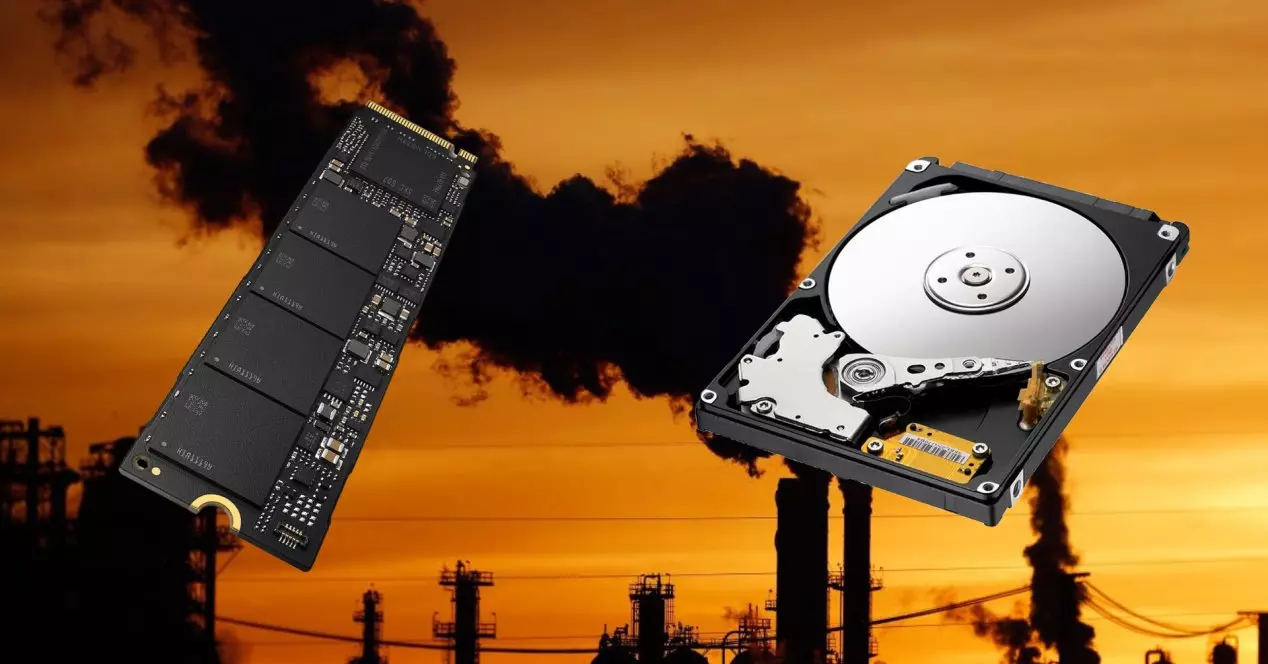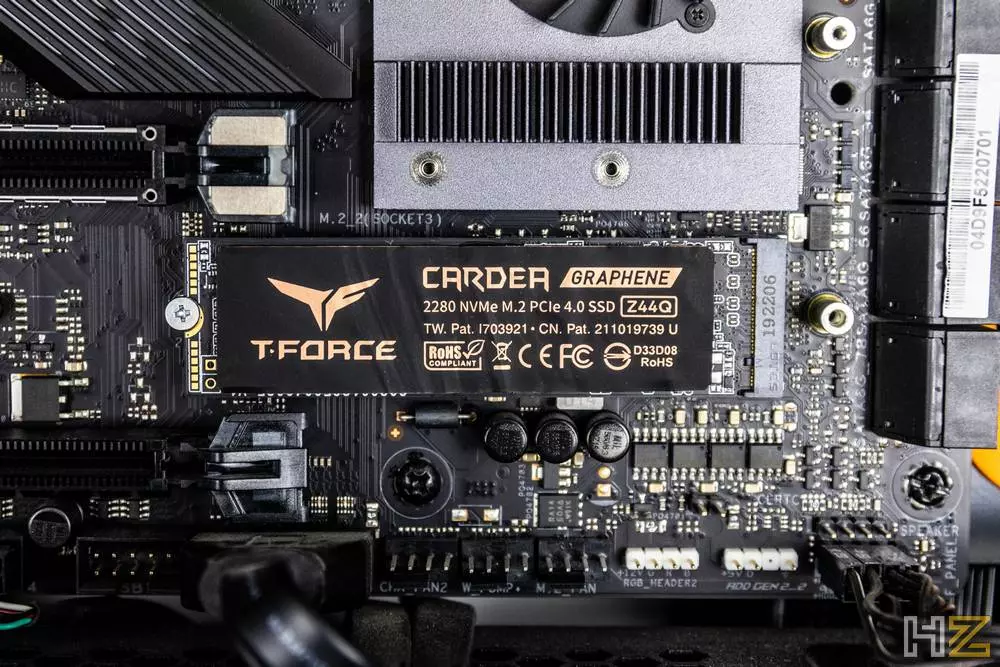
There are several advantages of SSDs over HDDs, not only in terms of read and write speeds. With no moving parts, the probability of damage from accidental shocks and vibrations is reduced. But also, SSDs consume less than HDDs, but then why do they generate more CO2 emissions?
SSD are bad for the environment
As we mentioned, the consumption of an SSD it is enough minor to the consumption of a hdd hard drive. Consequently, one tends to think that they are better for the environment. At least, that’s what we all thought until we came across a study that really opens our eyes.
Researchers at the Universities of Wisconsin and British Columbia have studied the emissions from SSDs and HDDs. Specifically, they have analyzed the emissions of an SSD and a 1 TB capacity HDD. This makes the comparison as realistic as possible.
The first interesting fact that the study gives us is the energy consumption of these units. The units HDD have a consumption in 5 years of 183.9 kWh and in 10 years they have a consumption of 367.9 kWh. On the other hand, SSD have a consumption in 5 years of 56.9 kWh and after 10 years the consumption is 113.8 kWh.
Regarding CO2 emissions, the HDD would emit 79.6 Kg in 5 yearss and 159 Kg in 10 years. While the SSD would emit 24.6 Kg in 5 years and 49.2 Kg in 10 years.
You must think that the data contradicts everything we have told you, but you have not taken production into account. And it is that, indeed, producing an SSD pollutes a lot rather than produce an HDD.
Making them is the differentiating factor
According to the researchers, a HDD emits in 10 years a total of 40 Kg of CO2 in terms of manufacturing. The SSDfor its part, emit in 10 years a total of 320 Kg of CO2. We can see that the production of SSDs is no less than eight times more polluting than HDD hard drives.
This brutal difference makes SSDs, globally, pollute almost twice as much as HDDs. According to the end result, a HDD emits in 5 years a total of 99.6 Kg of CO2 and an SSD emits 184 Kg of CO2. Regarding emissions in 5 years, HDDs emit 199 Kg of CO2 and SSDs emit 369.2 Kg of CO2.
The researchers indicate that for alleviate the problemthe optimum is use the SSD as long as possible. They also indicate that MLC and SLC memory are the best, as they offer greater reliability and lifespan than TLC and QLC drives.
Now it is up to memory chip manufacturers to improve the efficiency of memory production. This is not something easy, since manufacturing a memory chip is much more expensive than the mechanical parts of an HDD.





